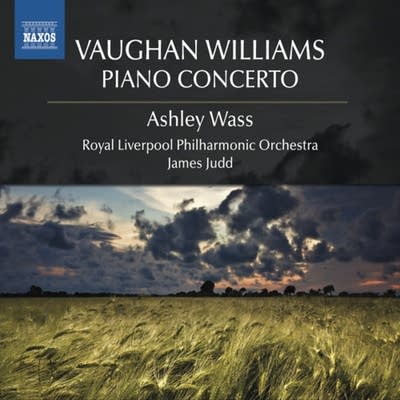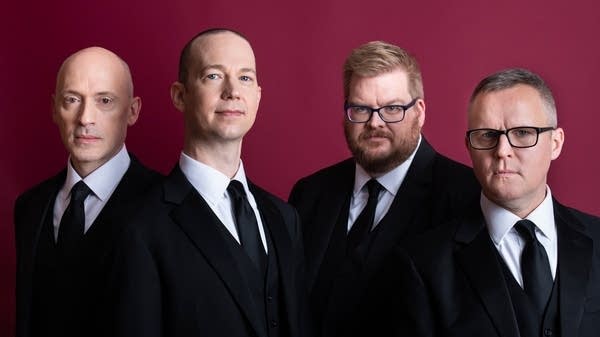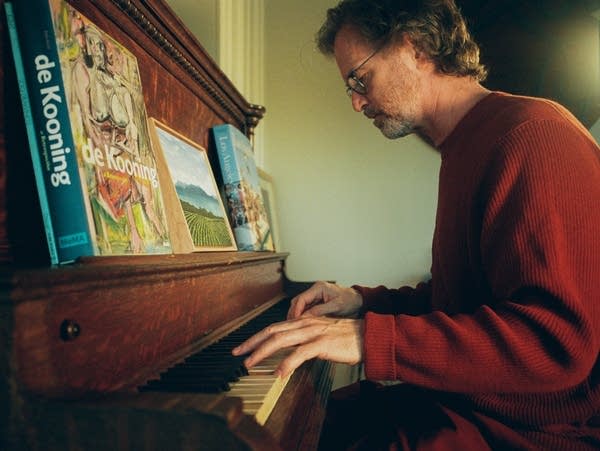
After earning a degree from the Royal College of Music, English composer Ralph Vaughan Williams went to Berlin to study with Max Bruch. Then it was on to Paris for a little French polish with Maurice Ravel. But in the end, Vaughan Williams emerged as an adventurous, distinctive British voice. That was due in part to his tireless effort of searching for, transcribing and preserving English folk songs for most of his career. Later, he incorporated some of those songs and melodies in his own music. Several of those pieces appear on this new release with James Judd and the Royal Liverpool Philharmonic.
The popular overture from "The Wasps" opens this new release. It's part of a suite of incidental music Vaughan Williams composed for this farcical play by the ancient Greek playwright Aristophanes. Following the Overture are some lesser known movements, including the "March Past of the Kitchen Utensils." In that movement a pot, a pestle and a water jug serve as witnesses on behalf of a dog accused of stealing. The wind section plays an earnest melody as the utensils offer their solemn testimony. Midway through, the mood suddenly becomes more joyful as the entire orchestra joins in on a lively folk dance. In the Ballet and Final Tableau three rivals of Aristophanes are forced to dance during a boisterous symphonic frolic led, once again, by the vibrant wind and brass section of the Royal Liverpool Philharmonic.
Last year British pianist Ashley Wass made his debut at the BBC Proms in London performing Vaughan Williams' magnificent piano concerto. It's the first time this piece had been played there since 1939. When this work made its premiere, critics complained about the percussive piano part and its dissonant quality, but Ashley Wass really enjoys the physicality of this piece. He says the soloist is really fighting against the orchestra in this dramatic concerto, which draws the piano into its own musical texture. A major influence on this concerto was the Italian composer and pianist Ferruccio Busoni. He is remembered as a virtuoso pianist and for his transcriptions of Bach. We hear that influence especially in the driving toccata of the first movement. The soloist has more freedom and is completely exposed during the opening of the second movement. Here, Ashley Wass has the opportunity to alter the rhythm and the tempo as a single note is played over arpeggios. This is one of those rare concertos which has a soft, slow ending. It's really quite beautiful to hear the music just magically disappear.
James Judd and the Royal Liverpool Philharmonic close out this new release with "The Running Set." This British dance once had its own original tune, to which it was danced, but that music was lost years ago, so Vaughan Williams combined several folk-songs long associated with the dance into one delightful continuous movement.
Ralph Vaughan Williams once said, "if the roots of your art are firmly planted in your own soil and that soil has anything individual to give you, you may still gain the whole world and not lose your own soul." He cultivated that approach in his own music-making, creating works unique to his English roots. That musical soul is brought to life in a fun, artistic way on this musical retrospective with James Judd and the Royal Liverpool Philharmonic. On this new release, you'll delight in the composer's folk songs, theatre music and his only piano concerto.
Love the music?
Show your support by making a gift to YourClassical.
Each day, we’re here for you with thoughtful streams that set the tone for your day – not to mention the stories and programs that inspire you to new discovery and help you explore the music you love.
YourClassical is available for free, because we are listener-supported public media. Take a moment to make your gift today.
Your Donation
About New Classical Tracks®
Host Julie Amacher provides an in-depth exploration of a new classical music release each week.
Subscribe on Apple Podcasts, TuneIn, Radio Public, or RSS.











